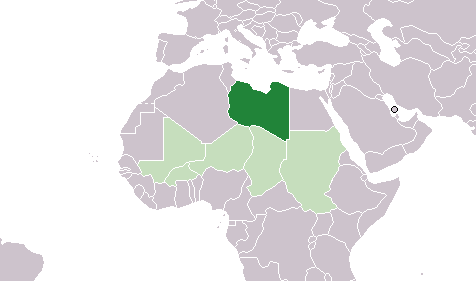Turkey Doubles Down in Libya, Stirring Discord in the Region’s Proxy Wars
By: Nathan Matsko
Bellefonte — Recently, Turkish President Tayyip Erdogan was quoted as saying that two Turkish soldiers had died in Libya. The President also confirmed suspicions long held by opponents claiming that Syrian Rebels allied with Turkey have been fighting in the country alongside Turkish forces.
Video evidence of Syrian rebels in Libya went viral late last year, purporting to show that Syrian rebels were indeed cooperating with Turkish Allies in the North African country.
The Turkish soldiers killed in the country were part of an effort to support the UN-recognized government in Libya, the Government of National Accord, or GNA.
Though the GNA currently resides in the capital of Tripoli, their hold on the city has been tested as of late. Tripoli’s Mitiga International airport has come under attack several times in the past few weeks from Libyan National Army, or LNA, led by Khalifa Haftar, which is based in Tobruk.
Furthermore, the situation is continuingly complicated by an endorsement of the LNA forces by Syria’s government, with Khalifa Haftar opening a Libyan Embassy in Damascus.
While Erdogan’s new alliances and cooperations have worked to embolden and support both sides of the conflict, the underlying reasoning behind all of this is clear: Turkey is trying to fight a war on two fronts. One is a sustained campaign into Northern Syria, and the other is in Libya, where Turkey and its allies are working to directly oppose any efforts to recognize the LNA as a legitimate government.
Transferring rebels from an increasingly stabilizing Northern Syria and sending Turkish troops to support efforts appears to be Turkey’s effort to fight a proxy war to defend one of its last allies in the region, as Anakara becomes more and more isolated.
Credit: Wikimediacommons
Turkey also has massive economic prospects and assets in the country. Prior to the revolution that ousted longtime ruler Muammar Gadaffi, Turkey invested billions of dollars into construction projects and economic prospects. Though Turkey opposed the revolution until it became an inevitability, Turkey was quick to re-establish some sort of ties to help stabilize the broken nation, backing the Government of National Accord in Tripoli. The rise of a government that opposes Turkey would be disastrous for these economic aspirations.
Moves by Damascus to legitimize Khalifa Haftar’s forces have been supported by Russia, as well as by regional governments such as Egypt and the UAE, the latter of which reopened its embassy in Syria’s capital in December. Egypt has been in dialogue with Syria for quite some time. It’s fair to assume many regional allies, though maybe not publically, recognize that the Assad government is stable enough to reestablish ties with.
This signals a shift in the influencers that will shape the region. Turkey has been an opponent of the Assad regime since the beginning of the conflict. Recent events in Syria’s northernmost governates, primarily the Idlib Governate, have proven costly for Erdogan’s efforts.
Dozens of Turkish soldiers have been killed in Idlib by Syrian government forces and its allies, putting a strain on Erdogan’s efforts to secure the region in collaboration with whatever regional partners remain.
These difficulties, along with the recent casualties in Libya, demonstrate a rapidly changing political landscape and a shift in the power balances in the Middle East. Much to Erdogan’s potential dismay, it is one where Syria seems keen on retaking its place as a key player. The war in Libya will continue despite attempts at negotiations which ultimately failed, and Turkey seems adamant on fighting to keep its sphere of influence relevant.


